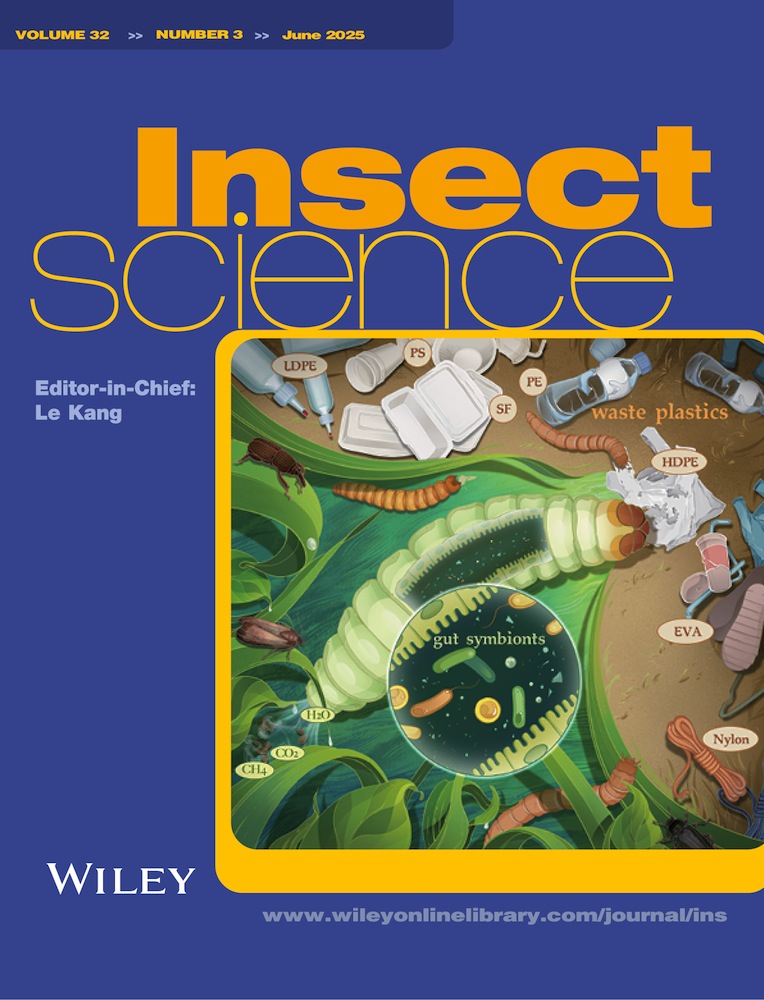Cover Caption
Abstract
Plastic pollution is a critical environmental challenge, with vast amounts of synthetic polymers accumulating in ecosystems. Recently, researchers have explored the potential of insect-microbial symbioses as a biological solution for plastic degradation. Certain insect larvae, such as waxworms and mealworms, exhibit the ability to degrade plastics through a combination of mechanical fragmentation, microbial biofilm formation, and enzymatic breakdown. Their gut microbiota secretes extracellular enzymes, which work in tandem with endogenous enzymes to modify and cleave polymer chains into digestible metabolites (see pages 726–752). This novel approach adapted from the insect-microbial symbiosis presents a groundbreaking, nature-inspired strategy for mitigating plastic pollution through biological degradation.




